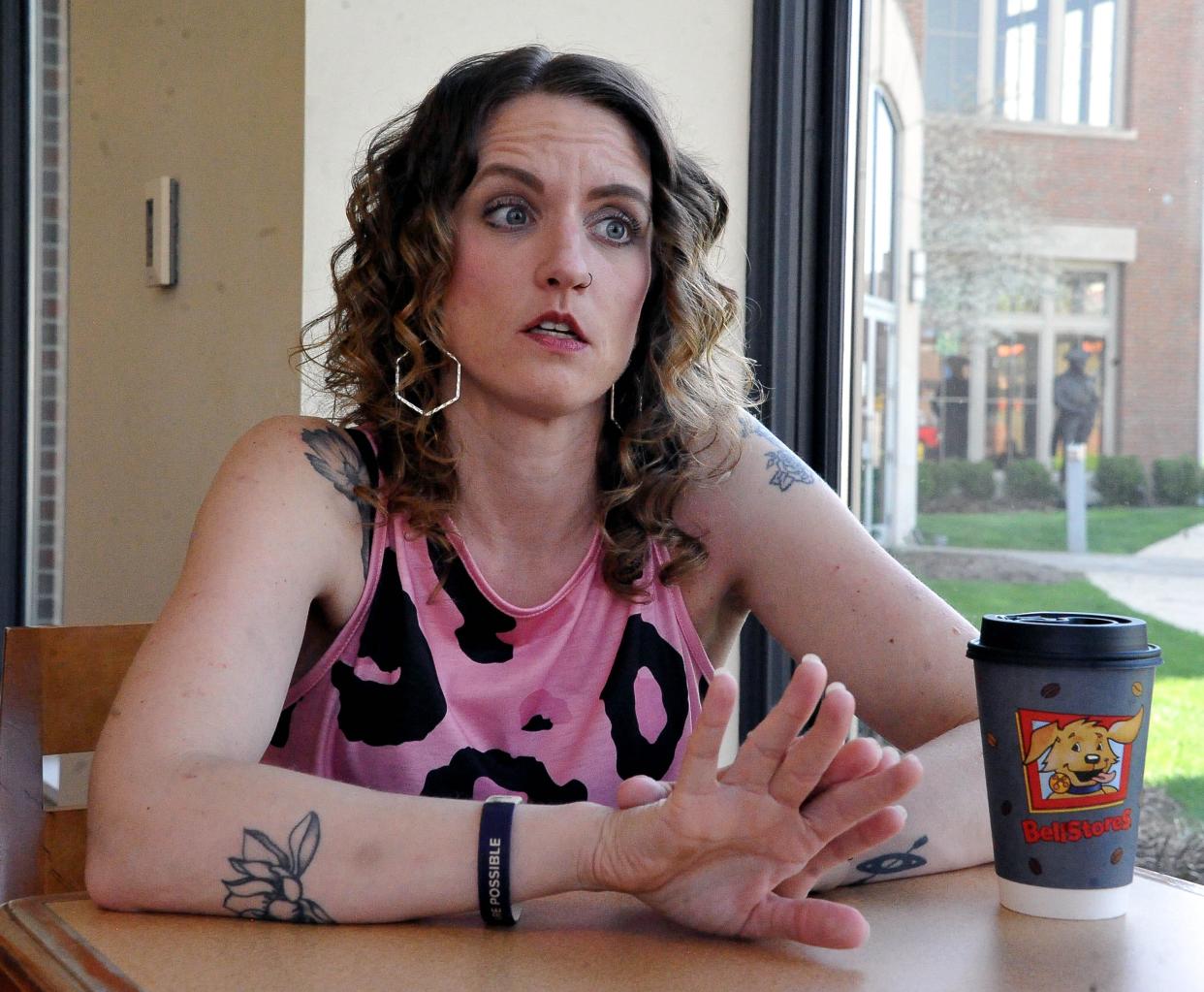Wooster native struggling with possible after-effects of COVID-19 vaccine
For some, controversy over potential consequences of getting the COVID-19 vaccine or COVID itself is a spirited discussion.
For others, like Morgan Ritz, who lives in Canton but spent most of her growing up years and beyond in Wooster, it's personal.
When Ritz, an ultrasound technician with a vascular specialty, was changing jobs in 2022, her application gave her the option of refusing a COVID vaccination based on a religious exemption.
But when she submitted it, she was told it was a requirement for the position.
"For a day or two I grappled with it," Ritz said, but "I was going to be out of the job if I didn't get (the vaccination)."

Symptoms began with 'random jolts'
Her symptoms after the first dose in December 2022 were "random jolts" − feeling like she was going to pass out.
She wondered, "What was that?" But the sensation was "gone before I knew it."
"It only happened a few times between the first and second dose. I didn't put two and two together," she said.
After the second dose in the same month, it happened more frequently.
More: Doylestown 15-year old put what she read about into action, saved mom from diabetic coma
Symptoms that begin at the end of 2022 "gradually increased over the months in 2023 to an overwhelming point in August 2023," Ritz said.
Starting with her family doctor, she made the rounds of healthcare professionals and ultimately was referred to specialists in cardiology and neurology.
When administered a shorter version of a tilt table test in June of last year, "I passed it," she said.
A test of whether her nervous system was responding properly also was normal.
In August, Ritz obtained a doctor's note to write her off of work even though she still didn't have an actual diagnosis.
A full version tilt test in January confirmed a diagnosis of POTS − Postural Orthostatic Tachycardia Syndrome, which can make someone feel dizzy or faint because the autonomic nervous system isn't functioning normally.
A note from her doctor requested she be given accommodations at work, including not having to stand too long and access to water and snacks whenever needed, but her employer denied the request in February.
Being treated by functional neurologist
Unemployed and unable to participate in activities others take for granted, such as sit out in the heat to watch her son's baseball game, she now sees a functional neurologist in Columbus two times a week and pays for the visits out of pocket. Treatments consist primarily of lifestyle changes.
She often feels lightheaded and weak and doesn't sleep well. She even has a hard time taking a shower.
"I don't feel good most of the time," she said.
Even so, "I'm lucky compared to some people," who are relegated to wheelchairs.
Her husband, Chad Ritz, who says he works as much as possible to make up for Morgan not having a job, "pushes" her to do as much as she is capable of doing and not to give up.
For a while, she couldn't even drive, he said.
Many people's similar symptoms are blamed on stress and anxiety by healthcare professionals and told, "You just need to calm down," according to Ritz.
Two things she is grateful for are some improvement in her symptoms and greater awareness of potential consequences of the COVID vaccine.
Possible association between POTS and COVID
A January 2023 article in JAMA Medical News and Perspectives cites a possible association between POTS and the COVID-19 vaccination, while noting a stronger link with SARS-CoV-2 infection.
Multiple references online contain research examining the potential connection between the vaccination and POTS.
Ritz showed an article in the January issue of HeartRhythm titled "Postural orthostatic tachycardia syndrome after COVID-19 vaccination.
"It's not that (health care professionals) haven't heard of it," Ritz said. "It's not that far-fetched."
Ritz wants to make others who may be suffering aware of the possible cause, advising them to do their own research and to get a second and even third opinion.
"You know yourself best," she said. "You know something is wrong with you."
This article originally appeared on The Daily Record: Wooster native struggles with possible after-effects of COVID vaccine
